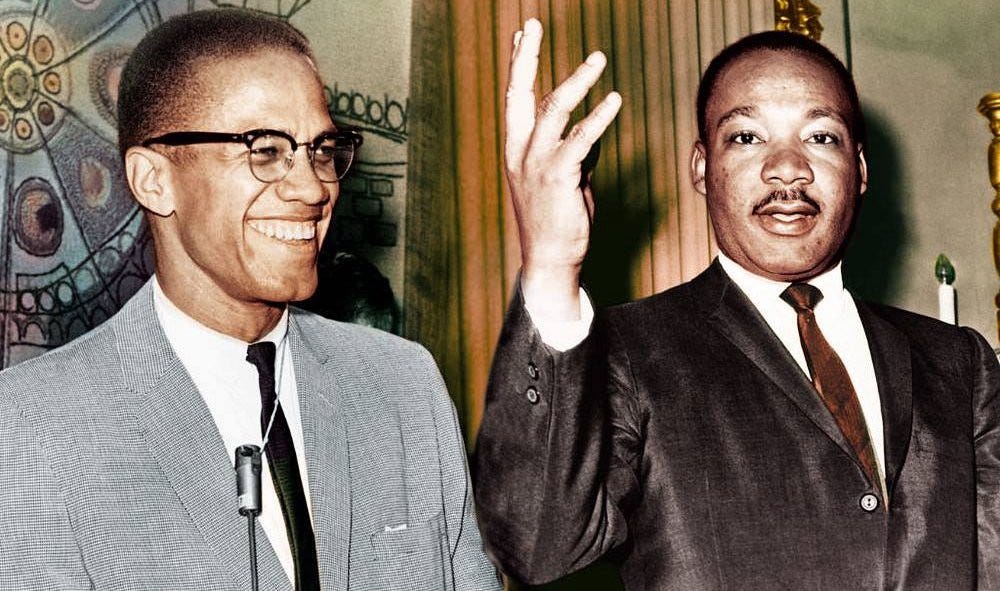

Speakers on the panel continued to reiterate that Black history is American history. Making documentaries is a great way to practice storytelling “without editorializing,” according to Jennings. “Many of these images and sounds have not been seen or heard, or have not been broadcast since 1965,” the film states.

“The Lost Tapes” pieces together forgotten footage from television and radio interviews, giving an intimate look into the life of Malcolm X, using only his own words and the words of those around him. and, finally, his tragic assassination followed by his followers’ reactions. The documentary depicts his transformative pilgrimage to Mecca, the twists and turns of his public relationship with Martin Luther King Jr. The viewer follows Malcolm through his falling out with the Nation of Islam and his friendship with Cassius Clay, who was later named Muhammad Ali by Elijah Muhammad, leader of the Nation of Islam. The documentary follows Malcolm’s rise in popularity as a public figure. The Nation of Islam formed “to teach the downtrodden and defenseless Black people a thorough Knowledge of God and of themselves, and to put them on the road to Self-Independence with a superior culture and higher civilization than they had previously experienced,” according to Nation of Islam’s official website. He is a minister for the Nation of Islam, an organization founded in 1930 to serve the African American community. The documentary begins with Malcolm X’s rise as a civil rights leader. “Presented entirely through his speeches, newscasts and rarely seen archival footage, ‘The Lost Tapes: Malcolm X’ tells the story of the man who, ‘by any means necessary,’ willingly put his life at risk to bring change and equality to Black America,” according to the Smithsonian Channel.

“The Lost Tapes: Malcolm X” is the latest of the series. His work has led him to many things, including tracking down retired reporters to uncover their never-before-heard recordings. Jennings produces “The Lost Tape” series, which uses rare footage to tell the stories of historical figures, including Patty Hearst and JFK. “The Lost Tapes: Malcolm X” publicly premiered Monday, Feb. Following the premiere was a panel featuring producer Tom Jennings and curator of The National Museum of African American History and Culture, Professor Damion Thomas. The California African American Museum hosted a private premiere of “The Lost Tapes: Malcolm X” on Feb. Just as Black History Month came to a close, the opportunity arose for the public to hear Malcolm X’s story through his own words. He rose as a leader during an important time in American history, facing both opposition and admiration. To see more, visit WAMU 88.5.Malcolm X is a man who fought for racial equality in America. © 2018 WAMU 88.5 – American University Radio.Ĭopyright 2020 WAMU 88.5. Marcus Hunter, African American studies chair, University of California, Los Angeles co-author, Chocolate Cities: The Black Map of American Life Herb Boyd, Journalist author, “Black Detroit” Tom Jennings, Producer, The Lost Tapes: Malcolm X We listen back to the words of Malcolm X and apply them to the continued fight for racial justice. When the dog attacks you, you get that two-legged dog or four-legged dog.” Don’t you be fooled by these Uncle Tom, Negro preachers. The Lost Tapes: Malcolm X” that anthologizes moments from the activist’s life without commentary, interpretation or analysis. The film made a star of Malcolm X, albeit a controversial one, and its rare footage is now part of a new documentary from the Smithsonian Channel called “ “What’s good news for the sheep might be bad news for the wolf.” His words - including referring to white people as collectively evil - shocked the nation and left a powerful imprint on the Civil Rights Movement’s largely peaceful, non-violent efforts to work together with whites on integrating America’s public spaces and institutions. The broadcast also featured the mainstream debut of Malcolm X, then the spokesman for the Nation of Islam. Dealing with the condition itself is not enough and it is because of our effort toward getting straight to the root that people ofttimes think we are dealing in hate.” “We have to go to the root, we have to go to the cause. In its introduction, narrator and producer Mike Wallace speaks of a new separatist group called the Nation of Islam, made up of African-American Muslims who tout Black Nationalism. “The Hate That Hate Produced” was a documentary that first aired on New York’s WNTA-TV in 1959. “History is best qualified to reward all research, and we don’t have any historic example where we have found that have, collectively, as a people, done good.”


 0 kommentar(er)
0 kommentar(er)
